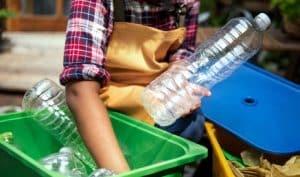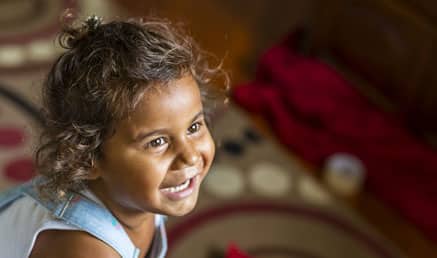
“It’s our polite nudge in the ribs to help you and your team stay organised and on task.”
This week’s subject is: Environmentally Responsible.
Element 3.2.3: The service cares for the environment and supports children to become environmentally responsible.
How does your service implement, embed and promote sustainability using a holistic approach across all service operations and practices?
Education and care settings have a responsibility to implement sustainability education and practices throughout the curriculum and all aspects of service operations. Sustainability isn’t just limited to having a recycling bin or a worm farm. It’s about finding and implementing ways to use resources that meet our needs without compromising the ability of future generations to meet their own needs.
Does your service adopt a holistic approach to sustainability, ensuring that decisions are made with intentionality whilst taking advantage of teachable moments to extend on children’s learning and understanding of being environmentally responsible and the impact that our actions can have on the environment and future generations?
When reflecting with your team, consider the range of practices that your service currently implements to promote sustainability and consider what more can be done. Conducting a sustainability audit that focuses on a variety of areas including, biodiversity, waste management, use and purchasing of resources, water conservation and energy efficiency is a great way to highlight the practices already implemented, for your self-assessment as well as identify areas of improvement, to be included in your Quality Improvement Plan.
Waste Management, Recycling and upcycling:
-
-
- Educate children on the how and why behind recycling in real time, using open ended questioning to spark interest and extend their learning
-
- Challenge children to create new and innovative ways to upcycle used materials within the service and at home
-
- Use colour coded bins and plan experiences to help children learn to identify which items belong in red, yellow and green bins
-
- Encourage families to donate their recycled materials that can be used at the service and as part of the educational program
-
- Substitute paper towels for hand cloth/towels
-
- Where possible, source secondhand resources and when buying new resources, try purchasing resources made from natural materials
-
- For services not providing meals, encourage families to provide waste/package free lunches
-
- Promote the Love Food, Hate Waste challenge
-
- Register your service for clean-up event/s
-
- Establish a worm farm or compost bin and have children create a poster identifying what items do and don’t belong in them
-
- Encourage children to use both sides of paper and reuse when finished
- Minimise printing and go digital wherever possible.
-
Energy efficiency and water conservation:
-
-
- Engage in regular discussions with children about conserving energy and water and why
-
- Create a “Sustainability Officers” (rotating) roster with roles such as “Water Monitor”, “Energy Monitor” and allocate these roles to different children each day
-
- Get involved with and promote Earth Hour
-
- Implement a range of practices to help minimise energy consumption, including turning off lights and power points when not in use, opting for natural ventilation over air-conditioning, installing energy efficient lighting, using natural lighting where possible and minimising the use of clothes dryer and dishwasher.
- Implement a range of practices to conserve water, including ensuring taps are turned off properly and are drip free, resources washed in a bucket rather than under running water, left over water is used in the garden and children collect rainwater for use at the service (where appropriate).
-
Information for families:
-
-
- Share the Service’s Sustainability Policy/Strategy and Sustainability Commitment Statement with families
-
- Share information and resources with families about sustainable practices to implement at home
- Include a Sustainability category in your newsletter and regularly share information and updates about new and innovative sustainable practices that have been implemented at the service and suggestions for practices to be implemented at home.
-
Resources:
Environmental Education in Early Childhood
We Hear You articles- Sustainability
Australian Association for Environmental Education NSW
Big Book Series- The Amazing Journey of Your Recyclables
Within System7 go to Quality Area 3/ 11, 12, 13 & 14 to submit self-assessment notes and if required, open a QIP issue if you identify any areas of improvement.
The Childcare Centre Desktop has a range of resources to assist services with environmental responsibility. These include Environmentally Responsible Policy, Sustainability Commitment Statement, Sustainability Audit, Environmental and Sustainability Officer Position Description and much more.
Resources, NQS Element, Regulation and System7 links:
Childcare Centre Desktop – Childcare Centre Desktop
National Quality Standard – QA 3/ 3.2.3- Environmentally responsible
National Regulations – 73, 74, 110
System7 Module – QA 3/Modules 11, 12, 13 & 14
If you have any questions, send us a note via the Contact page here!




